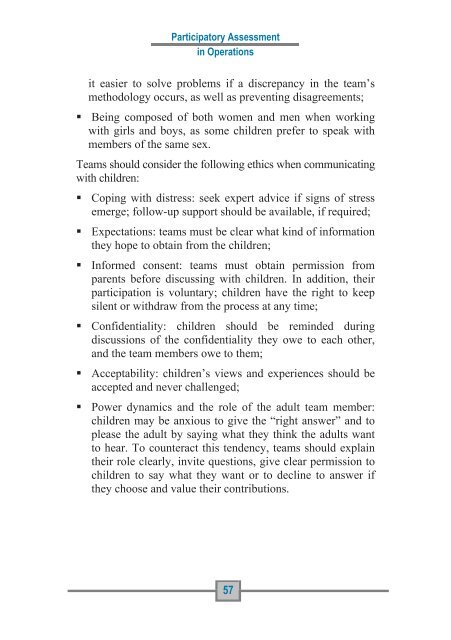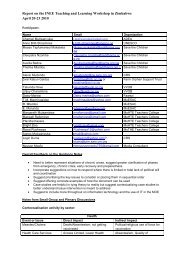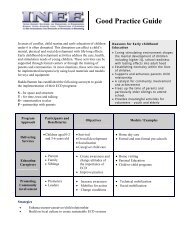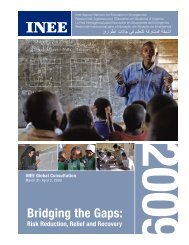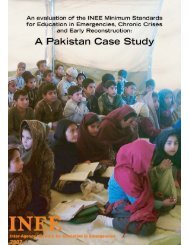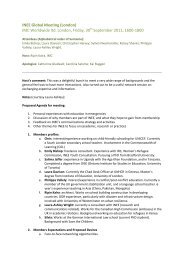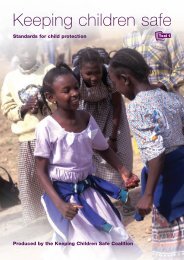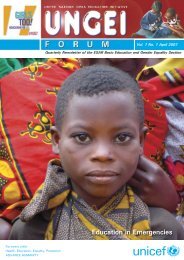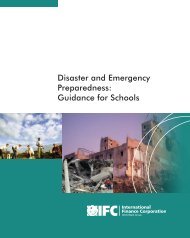Participatory Assessment - Refworld
Participatory Assessment - Refworld
Participatory Assessment - Refworld
- No tags were found...
Create successful ePaper yourself
Turn your PDF publications into a flip-book with our unique Google optimized e-Paper software.
in Operationsit easier to solve problems if a discrepancy in the team’smethodology occurs, as well as preventing disagreements;• Being composed of both women and men when workingwith girls and boys, as some children prefer to speak withmembers of the same sex.Teams should consider the following ethics when communicatingwith children:• Coping with distress: seek expert advice if signs of stressemerge; follow-up support should be available, if required;• Expectations: teams must be clear what kind of informationthey hope to obtain from the children;• Informed consent: teams must obtain permission fromparents before discussing with children. In addition, theirparticipation is voluntary; children have the right to keepsilent or withdraw from the process at any time;• Confidentiality: children should be reminded duringdiscussions of the confidentiality they owe to each other,and the team members owe to them;• Acceptability: children’s views and experiences should beaccepted and never challenged;• Power dynamics and the role of the adult team member:children may be anxious to give the “right answer” and toplease the adult by saying what they think the adults wantto hear. To counteract this tendency, teams should explaintheir role clearly, invite questions, give clear permission tochildren to say what they want or to decline to answer ifthey choose and value their contributions.


